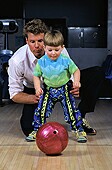- 8 Ways to Increase Dopamine Naturally
- 7 Best Breads for Maintaining Stable Blood Sugar
- Gelatin vs. Collagen: Which is Best for Skin, Nails, and Joints?
- The Long-Term Effects of Daily Turmeric Supplements on Liver Health
- Could Your Grocery Store Meat Be Causing Recurring UTIs?
- Are You Making This Expensive Thermostat Error This Winter?
- Recognizing the Signs of Hypothyroidism
- 10 Strategies to Overcome Insomnia
- Could Artificial Sweeteners Be Aging the Brain Faster?
- Techniques for Soothing Your Nervous System
Genes May Be to Blame for Hard-to-Handle Toddlers


DNA might be a key factor in excessive physical aggression in toddlers, a new Canadian study suggests.
Even if a child’s genes do foster such behaviors, however, all is not lost because parents can still work to curb aggression in kids, the researchers said.
“It should be emphasized that these genetic associations do not imply that the early trajectories of physical aggression are set and unchangeable,” study author Eric Lacourse, of the University of Montreal, said in a university news release. “Genetic factors can always interact with other factors from the environment … explaining any behavior.”
The findings might lead to improved ways to reduce childhood aggression, according to Lacourse’s team, which compared nearly 700 sets of identical and non-identical twins.
The twins’ mothers were asked to rate their children’s levels of physical aggression — actions such as hitting, biting, kicking and fighting — at the ages of 20 months, 32 months and 50 months. The researchers then looked at genetic and environmental factors — such as family or parent influences — that might affect aggression levels in the toddlers.
The development of physical aggression was strongly associated with genetic factors, and to a lesser degree with social environment, said the researchers, whose findings were published Jan. 21 in the journal Psychological Medicine.
Long-term studies of physical aggression also show that most children, teens and adults will eventually learn to control physical aggression, Lacourse said.
He said aggression in young children needs to be dealt with carefully because in-kind responses from parents, siblings and peers can simply reinforce the aggressive behavior. That could lead to a kind of “vicious circle” effect, he said.
“These cycles of aggression between children and siblings or parents, as well as between children and their peers, could support the development of chronic physical aggression,” Lacourse said.
More information
The American Academy of Family Physicians outlines how parents can change their children’s behavior.
Source: HealthDay
Copyright © 2026 HealthDay. All rights reserved.










